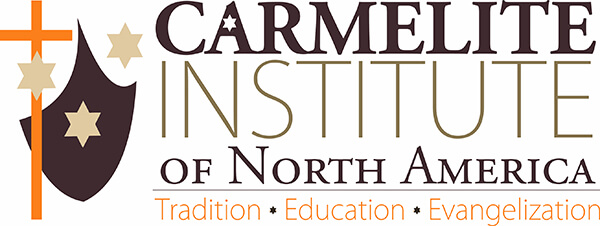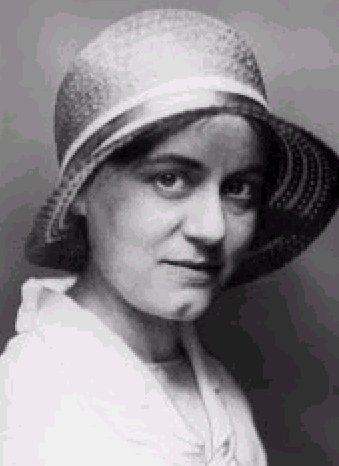A Reflection for the Feast of Edith Stein, August 9
Do you believe in Resurrection? Deep down, do you really believe in it? What gives a person the rare ability to sacrifice her life? How did Queen Esther find the courage to offer herself for her people? How did Edith Stein find this same courage? I want to suggest that her courage came from her understanding of the human soul, her contemplative knowledge of God, and most of all her profound, unshakeable belief in Resurrection.
We all know that death is an inevitable reality and yet we fear it. The fear of death may even be the root of all violence, whether fear of physical death or the death of yielding one’s power. Perhaps I am willing to use violent force to secure my survival, to exploit the resources for life and appropriate them for myself and those I identify with me. Perhaps I stand mutely by while injustice is done, for fear of being harmed myself. Perhaps I am even afraid to give spare change to someone begging on the street. Fear of death renders us powerless against oppression and upholds the power of oppressors. But this is wrong – and not just in the moral sense. I mean it is incorrect; it does not achieve its ends. Jesus said that the ones who will save their life are those willing to lose it! And after all, we know deep down that the solution to survival is not simply living on, and on, and on. The teaching of Jesus implies a radical change from the drive to survive; it shifts the axis from concern for my own survival to concern for the Other. This is the way of Resurrection, because only the certainty of possessing myself fully beyond death can free my capacity for total generous self-giving now. Human beings cannot be ready to give their lives like Jesus if they are not convinced that they are ultimately indestructible. This is how Edith Stein offered her life. Legend has it that she said to her sister when they were taken from their monastery, “Come, Rosa, let us die for our people.†Are you ready to die for your people? Am I?
That kind of strength comes only from a belief in resurrection that is not mere survival but a “total renovation and transformation,†This is a transformation brought about through the Spirit that is God. Edith believed in this Resurrection with conviction that burst forth in an unconditional embrace of shared common life, courageous action, and complete self-sacrifice. And more: she knew that Resurrection is not some future event awaiting us at death or even sometime after death. Resurrection is a process, and it is happening in each of us, each time we gain greater possession of our souls. What I do now will make all the difference in the soul I take with me when I die (a frightening thought). Edith said, “The power of self-giving determines not only the measure of mutual help but the measure of what can be received into the individual soul and therefore the degree to which the individual soul can be elevated.†Ahead of her time Edith Stein believed that the soul evolves, depending on what aspects of its potential the person agrees to develop. The soul evolves and each person influences the evolution.
This is a matter of choice for us. We open ourselves to the “vital influx†of God’s Spirit, Edith says, by finding the innermost center of our souls, residing there, and acting from there. How we do this, she tells us, is by taking time to withdraw from surface activities, by “listening to one’s own heartbeatâ€, which is the inward being of the soul. It is a daring disregard of the part which our own ego plays in the world. In short, she is describing contemplative prayer. Without it, instead of the way of Resurrection, we choose to be satisfied with the crusts that form over the top of the soul, limiting ourselves to superficial occupations and concerns and a kind of unrelieved egotism.
Listening to one’s own heartbeat is not just an inward journey, for development of the soul bears fruit in how we live for others – as a community, and for our common survival. The task is no less than to achieve the peace of the cosmos and the reconciliation of humankind. The task is to appropriate Resurrection as an ongoing process today. As we encounter God in Spirit and in truth, we can expend and sacrifice ourselves entirely, for nothing is in vain. You are to work on your soul until you really can die for your people, until your fear of death is overcome by your belief in life. The soul must take a stand! Would I die for my people? The nuns have heard me say that sometimes I find it hard even to be inconvenienced for my people! But as Resurrection works on me and on you, it will express itself in new attitudes and actions until it reaches a final completion. I doubt most of us will be asked, like Edith, to die for our people. But we are asked to engage in the formation of our souls that the process of Resurrection demands. To quote Leonardo Boff: “One heart opening out to another in love and forgiveness? Resurrection is happening there! People building more just and fraternal relationships? Resurrection is coming about there! Has some growth in life, especially of the oppressed and condemned, come to pass? Resurrection is revealed in that!†So today Edith Stein asks us, not “will you die for your people?†Instead she asks: “will you live for them?â€
Fran Horner, ocd
August, 2009

